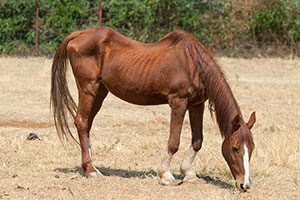Can a defendant who is charged with misbranding drugs that were administered to racehorses offer expert testimony that the drugs were not performance enhancing? The Court of Appeals for the Third Circuit held that the expert testimony was inadmissible.
Misbranding Drugs
Pennsylvania has a law that prohibits administering nearly all drugs to a horse during the 24 hours prior to post time if the horse will run in a thoroughbred race. Veterinarians who administer drugs to racehorses must keep a record of the date, time, and drug that was given to the horse.
Murray Rojas is a horse trainer who handles horses at Penn National Race Track. He was accused of executing a scheme to administer drugs to horses within 24 hours of their races. While that conduct would typically result in prosecution of a state crime, prosecutors “made a federal case out of it” by indicting Rojas with 21 federal charges, including multiple counts of wire fraud and misbranding of animal drugs. He was also charged with conspiring to commit those crimes.
Misbranding typically refers to changing or removing labels on prescription drugs. Another federal law provides that certain animal drugs may be “dispensed only by or upon the lawful written or oral order of a licensed veterinarian in the course of the veterinarian’s professional practice.”
A prescription “authorized by law” is a lawful order. Dispensing such a drug without a lawful order is deemed a form of “misbranding” of the drug. While the government stretched to find a theory that supported a federal charge, the facts fit the charge well enough for prosecutors to federalize the crime.
Rojas’ Trial
At Rojas’ trial, three veterinarians testified that, at Rojas’ direction, they administered drugs to horses and falsified reports by either backdating or misrepresenting the drugs that were administered. The court rejected Rojas’ argument that the statute only prohibits “dispensing” drugs and that “administering” the drugs does not violate the law.
A jury acquitted Rojas of the wire fraud and associated conspiracy counts but convicted him of each count of misbranding animal drugs and conspiring to do so. Among the issues Rojas raised on appeal was whether the court erred by disallowing expert testimony.
Expert Testimony
Rojas argued that the Pennsylvania law making it unlawful to administer drugs to a racehorse within 24 hours of the race is meant to assure that races are fair by preventing owners from winning races through fraudulent means. In his view, if the drugs could not have affected the race, they were lawfully administered and thus were not misbranded.
Rojas wanted to establish his defense with expert testimony. His expert would have testified that the drugs were therapeutic rather than performance enhancing. The expert would also have testified that the drugs could not have improved a horse’s opportunity to win a race.
The jury might have wondered why Rojas wanted veterinarians to falsify the names of the drugs and backdate the reporting forms if the drugs were innocuous. In any event, the jury did not hear the expert testimony because the trial judge concluded that it was irrelevant.
The appellate court affirmed that decision. To be admissible, expert testimony must help a jury decide a disputed fact. The court of appeals decided that Pennsylvania law made no distinction between therapeutic and performance-enhancing drugs. The administration of all drugs must be reported accurately. Since no drug may be administered within 24 hours of a race, regardless of the drug’s nature, the expert’s opinion was not relevant to any fact that the jury needed to find.
Lessons Learned
Expert witness admissibility often turns on the expert’s qualifications or on the reliability of the expert’s testimony. Just as fundamental is whether the expert has something useful to say.
Rojas’ expert may have been well qualified and may been able to offer a reliable opinion about the effect of drugs on racehorses. If there had been a question about the identity of the drugs that were administered, an expert could have provided a useful opinion. Unfortunately for Rojas, the case turned on whether he caused drugs to be administered without a lawful order, regardless of the nature of the drugs.
Since the expert’ opinions did not address facts that mattered to the verdict, the expert testimony was properly excluded. The Rojas case stands as a reminder that expert testimony, while often an important means of proving facts, will only be admitted if it proves facts that matter.




